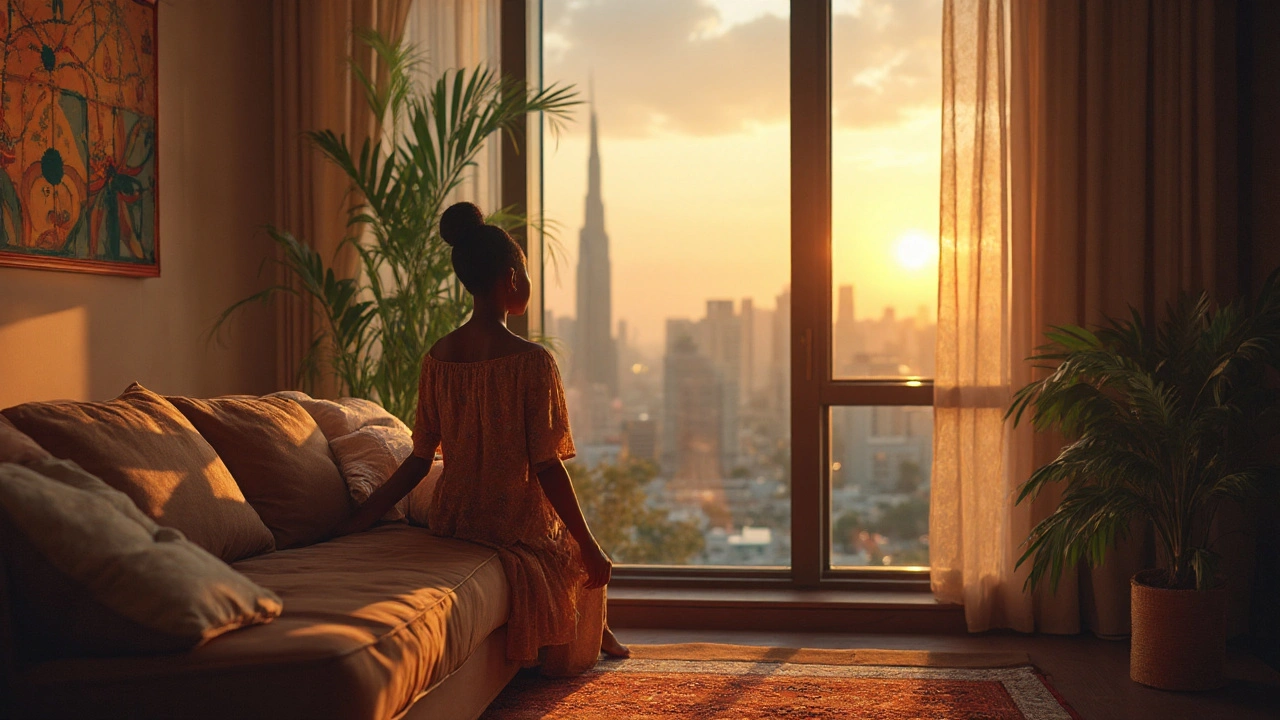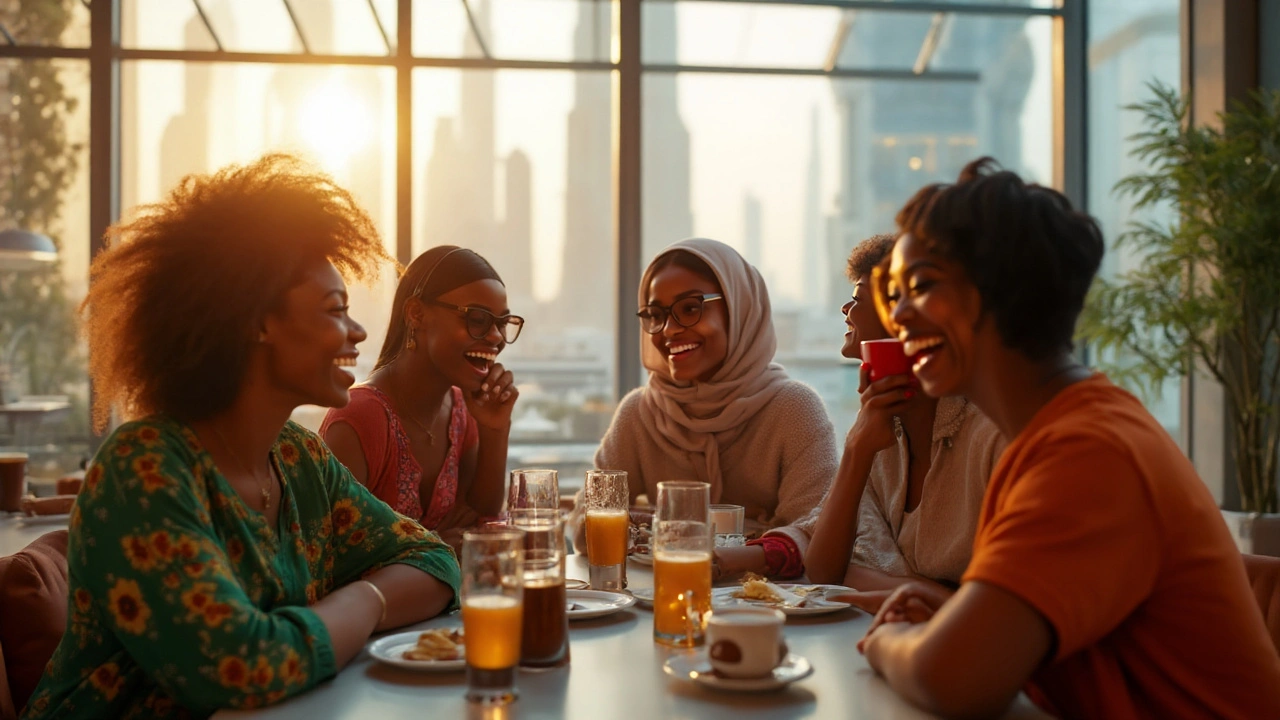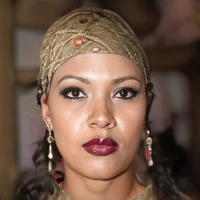Some stories really knock your assumptions sideways, and the lives of African girls in Dubai are exactly like that—a mix of glam photos, career hustle, and wild dreams fighting with harsh realities. From scrolling through Instagram to the bustling gold markets, African women are everywhere in this city, making their own mark. Yet, there’s a lot that you don’t see in stories or vlogs. There’s so much more beneath the surface, far beyond just shopping at Dubai Mall or lounging on JBR Beach.
Reality Check: Life as an African Woman in Dubai
African girls come to Dubai for all sorts of reasons—study, better jobs, supporting families, or sometimes chasing the slice-of-life adventure that Dubai teases on every travel feed. Nigerians, Kenyans, South Africans, Ghanaians, Ethiopians—the city draws them all. Want to know something wild? In 2024, the UAE had an estimated 200,000 African expats, a number that’s crept up each year according to local government data. Women make up a huge slice of that number, especially in Dubai because of its service, hospitality, retail, and creative industries.
The city promises glitz, but real life isn’t always easy. Workdays can stretch to twelve hours for nannies, waitresses, sales staff, or even marketing assistants. Some women arrive hoping to land modeling contracts or influencer gigs—drawn by Dubai’s insatiable social media scene, which prizes African style and music. Yet, things like work visas, language barriers, and cultural expectations can pull the rug from under them. Rent is no joke either—shared flats in places like Deira or Al Nahda go for 2,000 to 3,500 AED per month, and that’s just for a spot in a room. And ever heard of Dubai’s ‘no address no job’ rule? Employers here want to see proof you live in the city before even hiring you, which traps many in a circle: you need a job to afford rent, but you need an address first.
Still, African girls find homes in Dubai’s lively communities. Bur Dubai, for instance, is buzzing with Ethiopian bakeries and Nigerian markets. If you’re feeling low, you’ll probably spot someone making waakye or ugali and offering a seat—the sense of community is strong. Culture shock is real, but most adjust fast (thanks, WhatsApp family groups). One Kenyan friend told me she learned more Swahili gossip on a Friday afternoon in Sharjah than she’d ever heard back in Nairobi.
Friend circles become lifelines. Women help each other with things as practical as job leads, secondhand furniture deals, and navigating the mind-boggling paperwork for emirates IDs. There are Facebook groups like “Nigerian Ladies in Dubai” and Telegram forums for flats, jobs, and plain old support. Even a quick tip for newbies: join these before you board your flight. They’re gold mines for “where to find jollof rice” or “who’s hiring this season.” My cat Luna always acts as though she runs the living room, but these African girls truly find ways to own their new spaces and routines.
Of course, not everything is rosy. Harassment, discrimination, and workplace bias come up, especially in industries that lean heavily on looks or language skills. Many African girls struggle with stereotypes—like being mistaken for only domestic workers, or needing to prove their education over and over. Instagram and TikTok might show the fun stuff, but DM convos are loaded with stories of difficult days with fussy clients or dodging dodgy landlords. But here’s the flip side: African girls in Dubai are increasingly visible in entrepreneurship—starting fashion labels, marketing agencies, or launching YouTube shows that capture what real Dubai living feels like.
All said, life in Dubai for African women is anything but boring. If you’re quick to adapt, streetwise, and able to laugh at the chaos, there’s so much to discover.

Opportunities and Everyday Struggles: Work, Study, and Social Life
African girls dubai—type this into Google, and the search will show you a weird mix: study-abroad advice, job boards, photo shoots, and nightlife tips. Every success you see usually took months of behind-the-scenes hustle. Dubai’s law requires every worker to have a sponsor—a company, local, or spouse. So, finding a legit job and getting the proper visa is the first hoop. The good news? Dubai needs people. Whether you’re into teaching, sales, fashion, beauty, IT, or logistics, jobs are out there. For those with university degrees and work experience, income ranges from 3,000 AED (entry-level) up to 15,000 AED per month for skilled gigs. A 2024 LinkedIn salary analysis for Dubai showed African expat women in hospitality and retail earning around 4,500 AED/month on average, with spikes in fields like finance or engineering.
Some girls come as students, since universities here love international learners. African girls often win scholarships—especially in STEM. But tuition’s steep (average 40,000 AED per year at places like University of Dubai), and you’re only allowed limited part-time work. Juggling late night café shifts with classes? That’s normal. There are also those who “freelance”—which, depending on visa rules, can be a legal grey area. Be careful here! Authorities do check papers during random spot inspections; fines run up fast if your paperwork isn’t in order.
Health insurance is required by law. Most formal employers provide it (or at least partial coverage), but if you’re freelancing, you have to budget another 1,500-3,000 AED a year for a basic plan. Here’s a helpful quirk: Dubai’s public hospitals are excellent, and there are even outposts of famous African doctors in pockets like Oud Metha and Al Barsha for when you crave home-style medical care.
Now, let’s talk free time and fun. Dubai’s party scene is wild—especially at Afrobeat-themed brunches, clubs like White Dubai, and pool parties at Five Palm Jumeirah. Every weekend, you’ll hear Amapiano thumping somewhere, and you can find pop-ups serving fufu or suya late into the night. But there’s more than glamour: African religious communities are vibrant, with Pentecostal churches and gospel choirs filling halls on Fridays. Also, don’t miss cultural festivals like “Africa on the Sand,” which draws expat crowds for dance-offs and food stands every year at JBR. Still, many women admit Dubai can be lonely—homesickness hits hardest during Eid, Christmas, or birthdays spent far from home. Setting aside time for regular check-ins with friends, both local and abroad, helps keep it all in balance.
Here’s a crucial tip—understand Dubai’s culture before you land. Dress codes are strict in public (no super short skirts or sleeveless tops in official places), and public affection between couples isn’t allowed. Nightlife is lively, but always keep a copy of your passport and visa handy. Dubai’s police are friendly, but penalties come quickly if you break the rules, and ignorance isn’t an excuse. For example, drinking in public or posting “too sexy” photos online can get you fined or even deported. No joke.
Housing is a different beast. African girls who arrive solo usually find flats through Facebook, WhatsApp, or Telegram. Landlords rarely rent directly to unmarried women, let alone African expats, so middlemen (sometimes called “agents”) spring up everywhere. Expect to haggle, expect fake property photos, and always ask for video calls if possible. Never send full payment without a signed contract. And ask lots of questions—like, will the AC work all summer, and is the building near a metro stop? Heatwaves hit hard between June and August, with highs reaching 45°C, and nobody wants to be stranded far from work.
Aside from work, many African girls get into side hustles: braid salons in shared apartments, homemade spice mixes, Afrocentric jewelry, or even event planning. A recent report in Gulf News showed that freelance beauty services among African women in Dubai grew by 19% last year—proof that hustle is alive and well. Quick tip: always check if your side gig is allowed under your visa, or partner up with someone who has the necessary paperwork.
Money management is a big learning curve. Western Union and apps like Wise or Remitly are lifesavers for sending money home, but the exchange fees stack up. Some girls use informal networks (the “hawala” system) for better rates, but you have to really trust the person handling your cash. Track every dirham, because Dubai’s temptations are everywhere—shopping, taxis, eating out, or the “just one more” night out with friends. Saving is tough, but necessary if you’re dreaming big.
| Key Fact | Typical Data/Cost 2025 |
|---|---|
| African Expat Population in UAE | 200,000 (est. 2024) |
| Shared Accommodation (monthly) | 2,000 - 3,500 AED |
| Entry-Level Salary (Hospitality/Retail) | 4,500 AED/month |
| University Tuition (per year) | 40,000 AED |
| Basic Health Insurance (yearly) | 1,500 - 3,000 AED |

Tips, Cultural Survival, and How to Make Dubai Feel Like Home
No one gives you a manual for surviving—and thriving—as an African girl in Dubai, but after dozens of chats, messy flat-hunting sessions, and late-night venting with my friends, there are definitely some hacks worth sharing. If you’re planning to head out here, start with research. Dive into expat groups online, and ask direct questions. The more you know before you arrive, the less you’ll fall for common traps like “instant job offer” scams or fake landlords. Pack smart: you’ll need formal outfits for interviews, modest wear for public spaces, swimsuits for beach days, and your favorite spice blend for comfort food freakouts. Trust me, Luna (my cat) gets extra treats every time my homesick cravings go wild.
Befriend other expats—both Africans and non-Africans. The city is a wild puzzle of cultures, so bring your curiosity. Attend networking meetups, go to free language classes, crash an outdoor market or two. Don’t be shy about reaching out for help. Loads of African aunties and “big sisters” are always ready to offer advice, a meal, or tough love. And you’ll need both sometimes.
Legal stuff matters. Don’t work without the right visa; it sounds tempting but isn’t worth the risk. Always keep digital copies of your passport, visa, and Emirates ID on your phone. Save emergency contact numbers. Download Careem or Uber (local taxis can get pricey), and give yourself extra time while adjusting to Dubai’s wild traffic. Fridays and Sundays are usually “moving days,” so if you’re job hunting or flat hunting, plan around those. If you face work issues—late salary, contract confusion, or harassment—Dubai’s labor office is decent at resolving complaints, but get your facts in order and stick to the procedures.
Homesickness? It’ll hit you, no matter how strong you are. Everyone deals differently: some dance it out at Afrobeat night, others cook with friends, or do video calls with their family at weird hours. There are African-run mental health support groups now in Dubai—ask community leaders or check with local African churches, mosques, or embassies.
On weekends, explore Dubai’s cultural side—check out the Al Fahidi district, visit the art galleries in Alserkal Avenue, join a hiking or beach clean-up group. The city gets a bit less intimidating when you discover hidden pockets that feel cozier and human.
- Keep a job search diary—list every application and contact, so nothing slips through the cracks.
- Always confirm interview locations; scams exist, sadly.
- Try bargaining at markets but play it cool—don’t overdo it, and watch body language.
- Join communal feasts during African holiday events for instant connection and nostalgia.
- And yes, share your WhatsApp wisely—Dubai’s social scene loves networking, but set clear boundaries for your own comfort and safety.
In the swirl of all this, maybe the hugest tip? Hold tight to your sense of humor. Dubai rewards risk-takers but can humble anyone. The most successful African girls I know here—whether they run PR agencies, style shoots, or late-night kitchen pop-ups—are always the ones ready to laugh off the chaos, hustle harder after setbacks, and fiercely support each other. If there’s a secret to making it work, that’s it.






